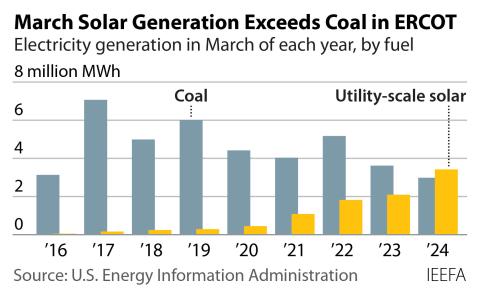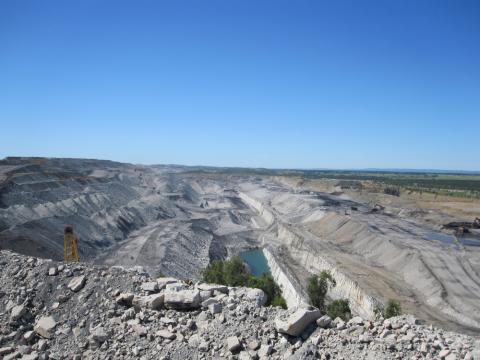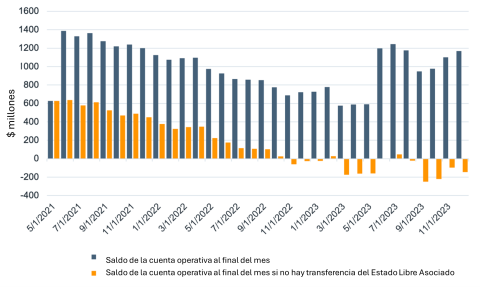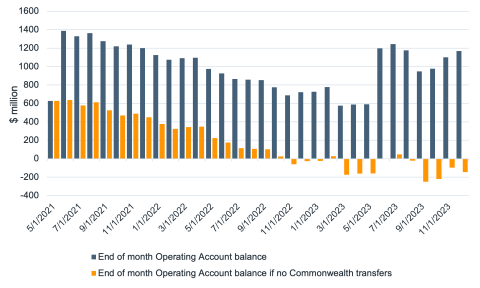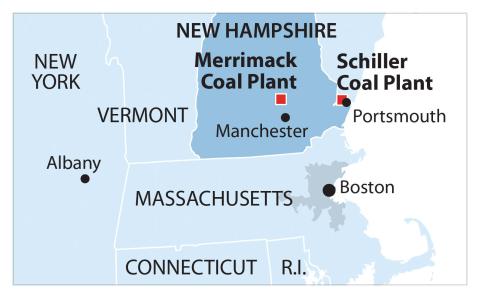Media Monitor: Op-Ed Epiphany, Informed Comebacks, and Two Editorials of Note
West Virginia Gov. Earl Ray Tomblin has a remarkable column in yesterday’s Charleston Gazette-Mail in which he lays out the beginning at least of a vision for a post-coal economy in a state that for generations has been so deeply connected to coal.
Tomblin has been governor for only three years but has spent his entire adult life in state government (he’s 63). He has a 40-plus-year history as a state legislator, including as the longest-serving president of the state senate. He’s a hard-nosed, powerful politician, no Johnny-Come-Lately and not a Pollyanna either.
When somebody like Tomblin puts a 777-word op-ed in the Charleston paper about the economic future of West Virginia and uses the word “coal” just once, that says something. How he uses the word speaks volumes too:
“With the help of Workforce West Virginia, we are retraining displaced workers — including our state’s coal miners and their families – with the skills they need to return to the employment rolls.”
He’s looking past coal, in other words, and he names names of companies that have responded to state overtures to bring new jobs into the region. Among them (and their state partners):
- “Procter and Gamble, which has announced plans to open a manufacturing facility near Martinsburg, will team with Blue Ridge Community and Technical College to train its employees.”
- “Macy’s has taken advantage of Blue Ridge’s programs for its fulfillment center employees in Martinsburg.”
- “Toyota has partnered with BridgeValley Community and Technical College to support a program that gives students hands-on experience while earning their two-year degree and getting a job with one of our state’s premier employers.”
Tomblin’s tone is sharply—even shockingly—different from what coal-fired politicians of Senator Mitch McConnell’s ilk continue to repeat as they spend public time and energy bemoaning a lost past and a expounding a dead-end point of view.
The governor knows the symbolic importance of the coal industry in West Virginia, and he has been known to act and talk like an industry shill. He refused to endorse President Obama for reelection, demonizing the president along the way, and his administration is among the most belligerent in its reaction to federal clean-air rules.
But he deserves credit for acknowledging the decline of coal and for closing his op-ed yesterday with a promise to get behind public-private partnerships to develop “the jobs of today and tomorrow.”
OVER IN NORTH CAROLINA, THE BIGGEST PAPER IN THE STATE EARLIER THIS SUMMER RAN AN ANTI-RENEWABLES OP-ED COURTESY OF THE KOCH BROTHERS and bylined by Donald Bryson, state director of Americans for Prosperity.
Board members of AFP include Richard Fink an executive vice president and member of the board of directors of Koch Industries, Inc. Bryson’s op-ed in the Charlotte Observer (titled “Let’s Repeal an Expensive Energy Policy”), argues for a Kochesque state crackdown on North Carolina’s solar-energy boom.
The good news is that William H. Schlesinger, dean (emeritus) of the Nicholas School of the Environment at Duke University, came back a couple of days later with some actual facts and figures that refute the Bryson spiel.
In a nutshell:
“A recent study published by RTI International and Scott Madden Consultants shows that the Renewable Energy Portfolio Standard (REPS) has saved ratepayers $162 million since it was adopted and will save ratepayers an additional $489 million by 2029. In North Carolina, the solar industry supports over 4,000 jobs and represents at least $2 billion of direct investment. In fact, the Renewable Energy Portfolio Standard has resulted in the growth of small businesses in North Carolina where energy is otherwise a regulated monopoly, Duke Energy.”
ON THE NATIONAL EDITORIAL-PAGE STAGE, BLOOMBERG VIEW THIS WEEK FOUND A STRONG HOOK in the shenanigans FirstEnergy is playing in Ohio, where the company wants ratepayers to subsidize the company to the tune of $3 billion to keep some of its old coal-fired power plants alive.
The piece cites IEEFA commentary by Cathy Kunkel cautioning Ohio regulators not to roll over like they did in a certain neighboring state:
“The strategy is similar to one FirstEnergy followed in West Virginia, when it got state approval to sell a coal-fired plant to its regulated subsidiaries, so that when the price of coal power became uncompetitive, the subsidiaries could secure an officially sanctioned rate increase.”
The editorial, short and sweet, ended with a pithy message that is gaining momentum:
“As an energy source, coal is in decline. By acquiescing to requests to delay this inevitability, regulators aren’t helping energy companies, their customers or the environment.”
Not to be missed, either, is an editorial last week in the Newcastle (Australia) Herald, that observes a certain hauling-coals-to-Newcastle absurdity to Anglo-American’s application to open a new mine in the Hunter valley. The piece notes a theory posited by IEEFA’s Tim Buckley that helps explain what’s up:
“The transnational might simply be trying to avoid having to deal with the rehabilitation liability for its existing Drayton mine. That mine will run out of coal soon, but by presenting the new Drayton South mine as an ‘extension’ of the old operation Anglo might be able to defer its rehabilitation obligation long enough to sell the whole outfit.”
Anglo-American can’t be crazy, can it? Maybe just crazy like a fox.
Karl Cates is IEEFA’s director of media relations.




